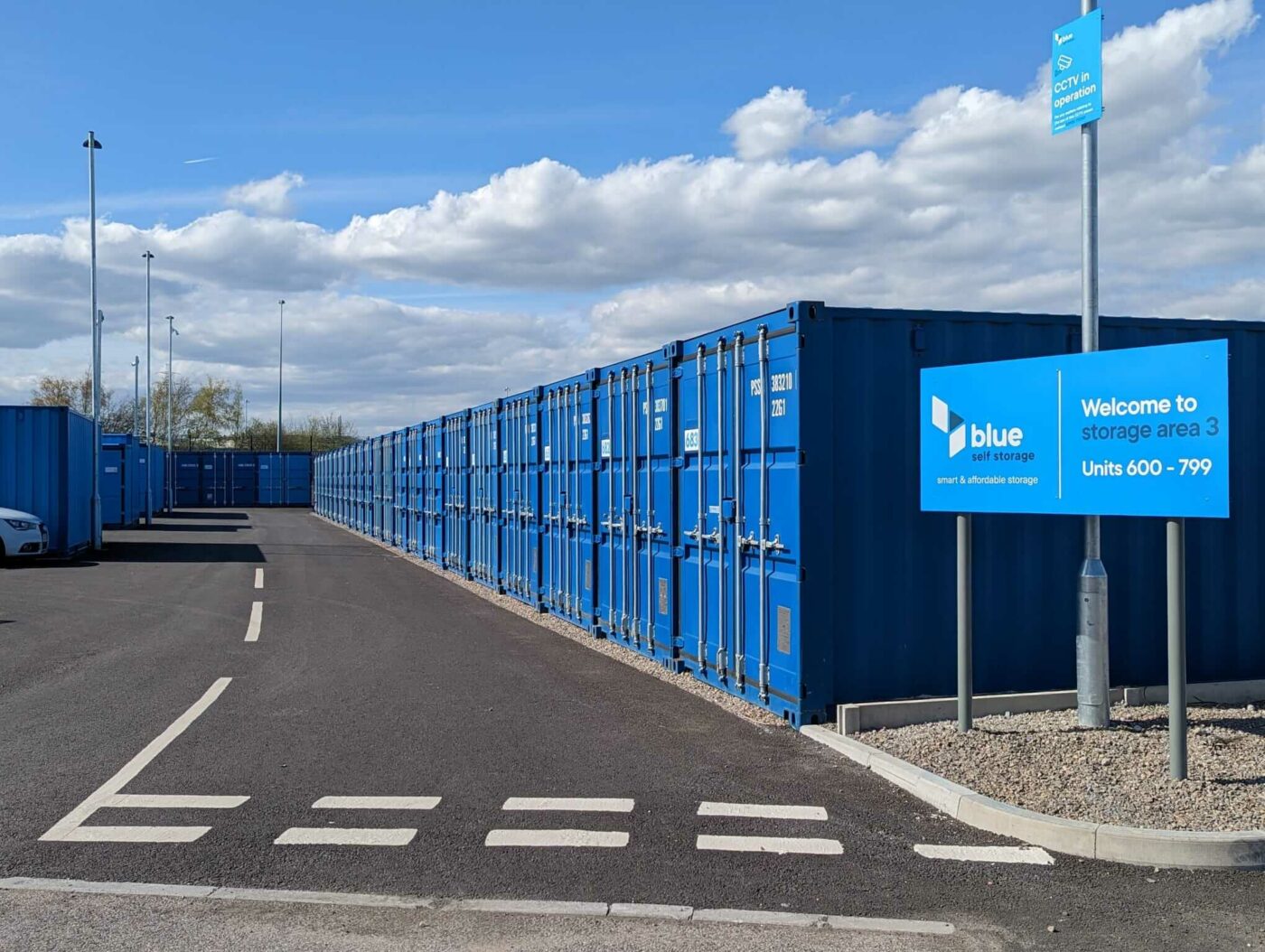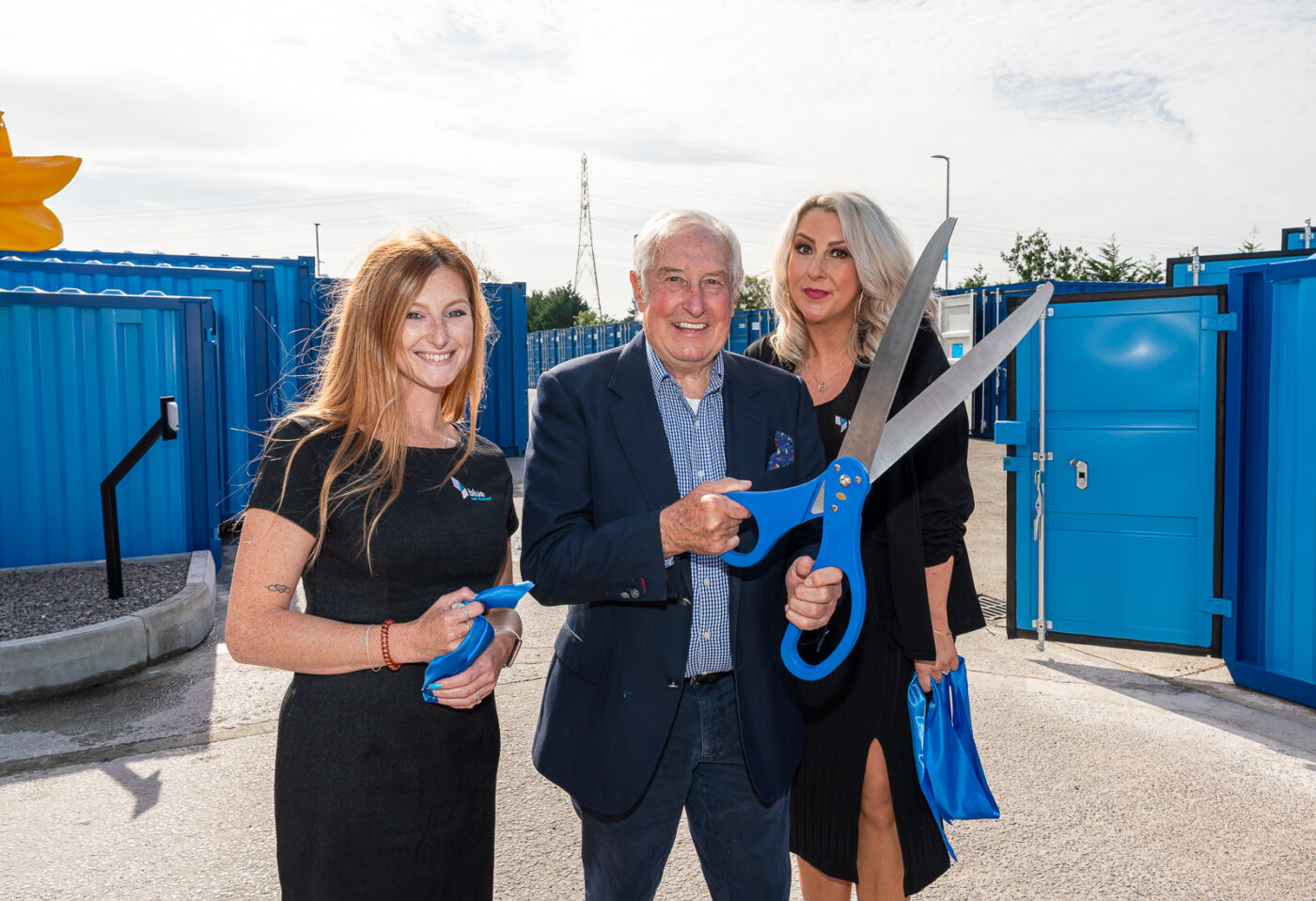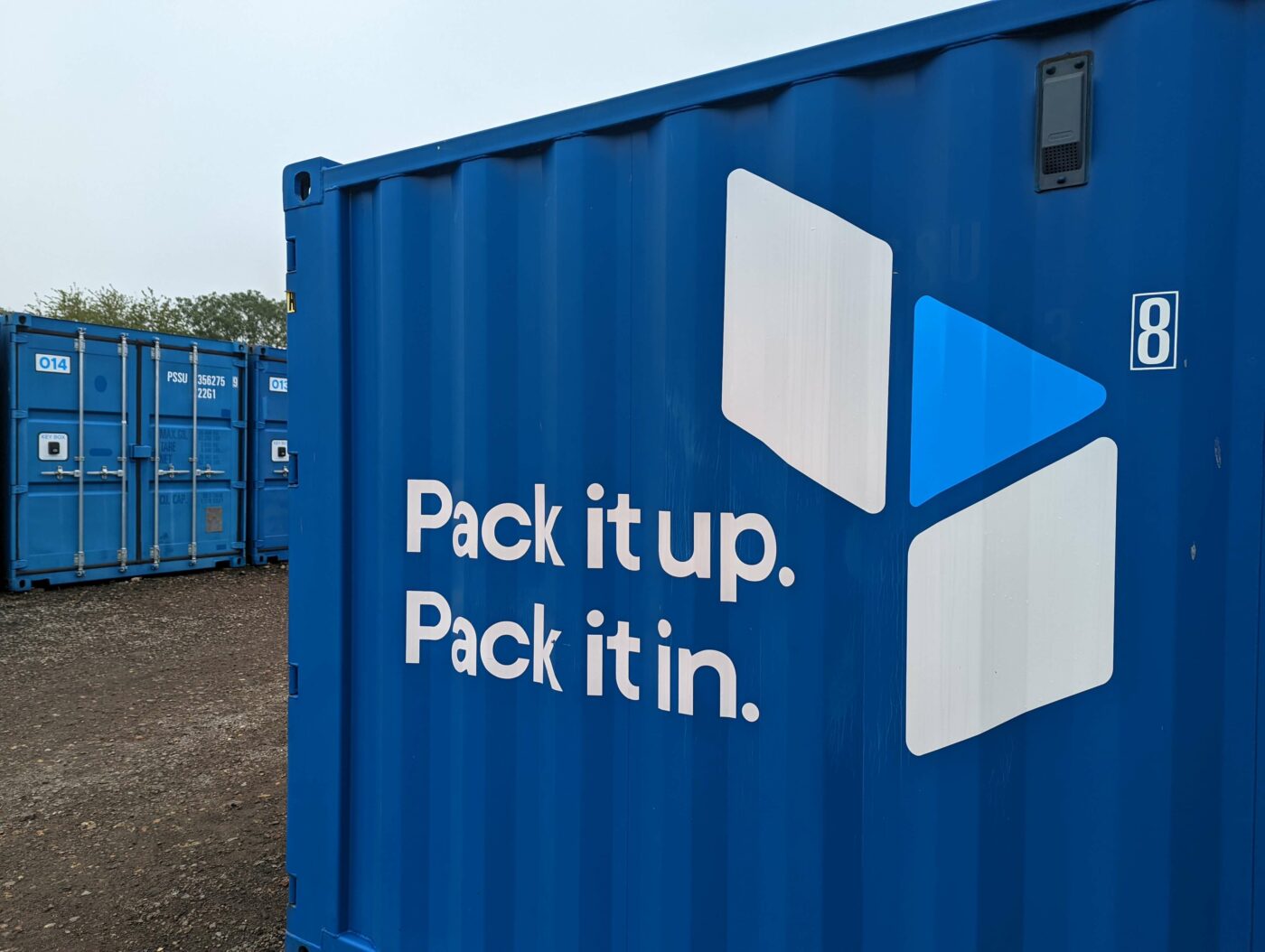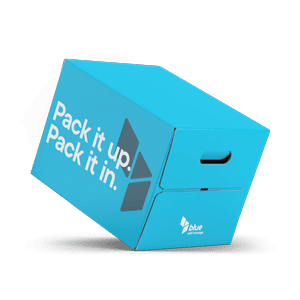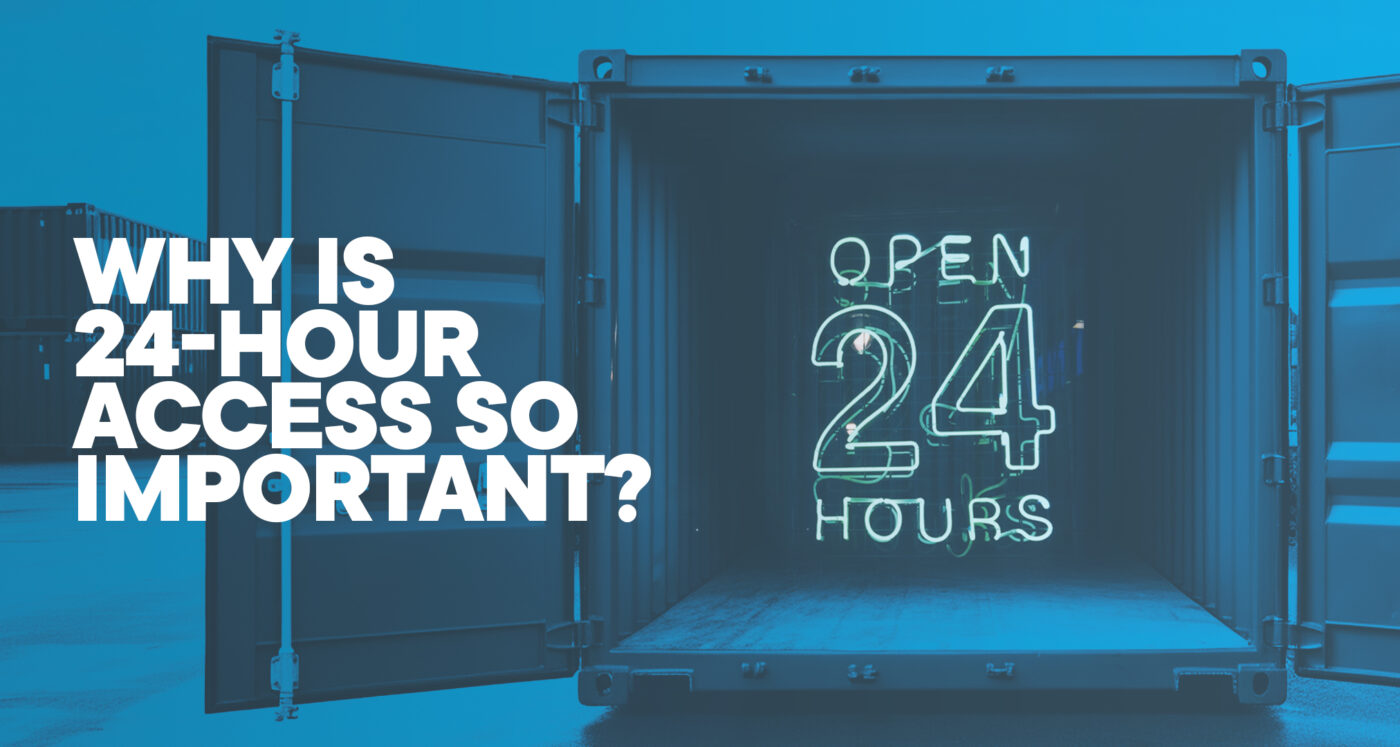
In a world where storage companies compete for that bit of edge, USPs (unique selling points) have become a real talking point of late. Some storage companies have reduced their operational hours, or charge a premium to access outside 9-5, whereas others are exploring the possibility of increasing. Thankfully at blue self storage all our sites are accessible 24/7.
24-hour access to storage containers is important for several reasons, primarily related to flexibility, convenience, and specific needs of users.
Here are some of the key reasons as to why we operate as a 24-hour facility:
Flexibility
People have varying schedules and commitments. Offering 24-hour access allows customers to access their stored items at a time that’s convenient for them, whether it’s during the day, night, weekends, or holidays.
This flexibility is especially important for businesses that might need to retrieve items outside of regular business hours. For example, we have a customer who sells alcohol 24/7. Rather than holding stock, it’s so beneficial the customer is able to access stock on demand.
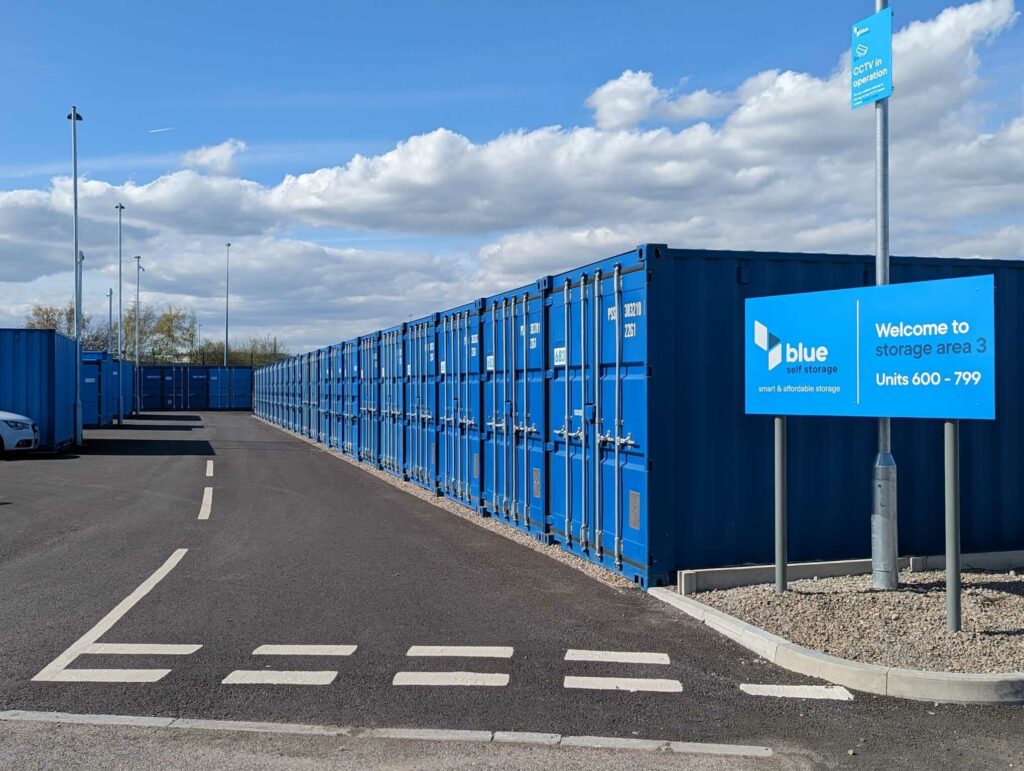
Emergency situations
Sometimes, individuals or businesses might need to access their stored items outside of regular hours due to unexpected circumstances. It could be an emergency situation, such as retrieving important documents, equipment, or supplies.
For example, we have a tyre repair customer on site who is unable to carry every size tyre therefore having access to his unit is paramount to him and his customers.
Business needs
Businesses often have fluctuating demands, and having access to their stored inventory, tools, or equipment at any time can be crucial for operations. Retailers, contractors, event organisers, and other businesses may require items from storage containers on short notice.
Personal convenience
Storage units are not only used for long-term storage but also for temporarily storing items during moves, renovations, or decluttering. Being able to access these items when needed ensures a smoother transition during these life changes.

Shift work and odd hours
Some individuals work non-traditional hours, such as night shifts or extended shifts. For these individuals, accessing their storage unit during unconventional hours aligns with their schedules.
Privacy and security
Having 24-hour access can enhance privacy and security. Customers might feel more comfortable accessing their belongings during quieter times when fewer people are around. Additionally, some people might prefer to load or unload items without observation.
Special projects
People might be engaged in special projects that require access to stored items at irregular hours. This could include hobbyists, artists, event planners, and more.

Peace of mind
Knowing that you can access your stored items whenever necessary provides peace of mind. This is especially true when there’s uncertainty about when the items will be needed.
Maximising productivity
For businesses, 24-hour access can lead to improved productivity. Employees can retrieve tools or materials during early morning hours or late nights, optimising their work schedules.
Customer satisfaction
Offering 24-hour access can be a competitive advantage for storage facilities. It caters to a broader range of customers and their diverse needs, increasing customer satisfaction and retention rates.
Not only are our sites open 24/7 but they are monitored 24/7 by our in-house security team and DSOC, for that extra protection.

It’s important to note that 24-hour access might not be necessary for everyone, and storage facilities may offer various access options based on the preferences of their customers. However, for many individuals and businesses, the flexibility and convenience of round-the-clock access are significant factors in their choice of storage solution.
#StorageMadeSimple
New to self storage? Explore our #StorageMadeSimple series with our experts:
- How to pack a storage unit [VIDEO]
- How we keep storage simple [VIDEO]
- How to choose the right size storage unit when you’re moving house
- Self storage insurance: what is it and is it important?

